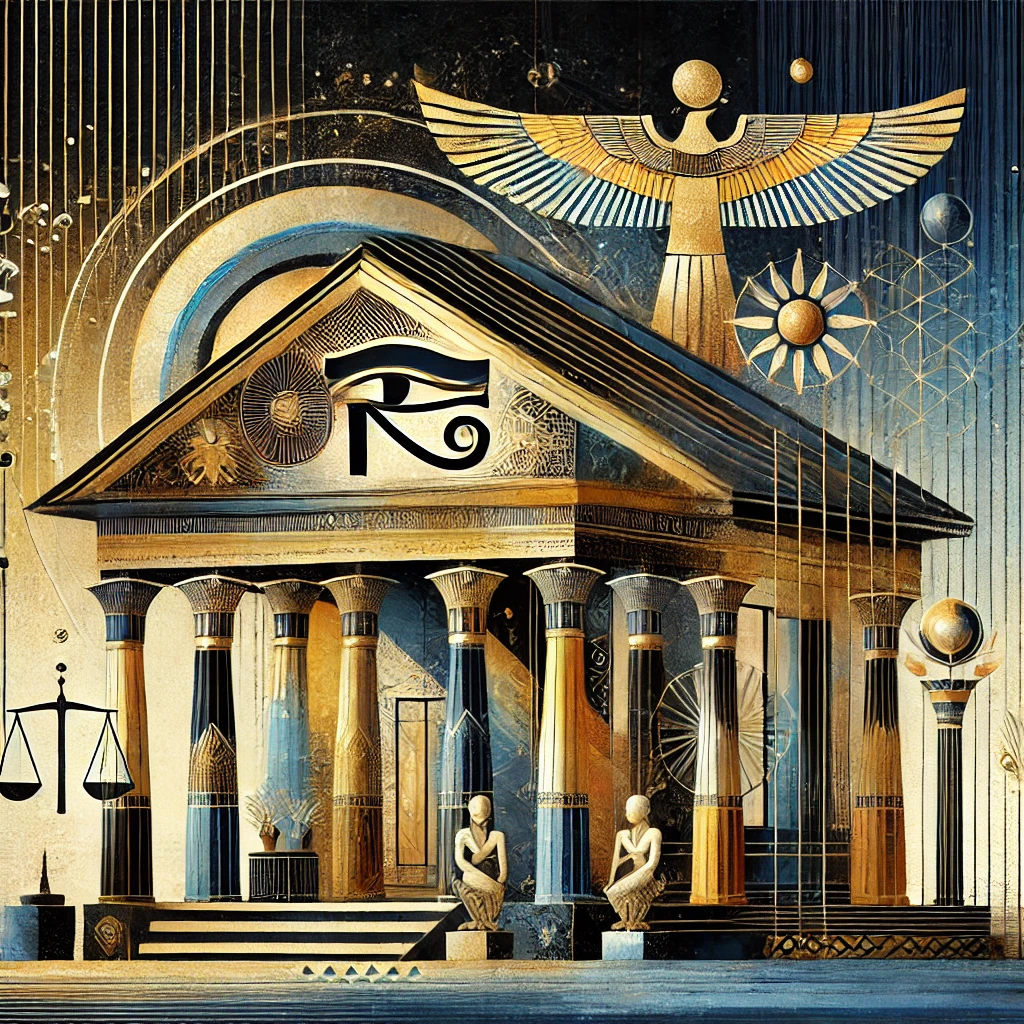Maat Philosophy

Place of Origin: Ancient Egypt
Century of Origin: Circa 2600 BCE
Overview of Maat Philosophy
Maat Philosophy is one of the earliest philosophical systems, originating in ancient Egypt. It centres on the principles of truth, balance, harmony, justice, law, and morality. Maat was personified as a goddess and represented the ideal way of living in harmony with oneself, others, and the universe. Followers of Maat strive to live according to these principles, ensuring their actions contribute to the balance of the world.
Metaphysics in Maat Philosophy is rooted in the belief that the universe operates according to a natural order. This order, symbolised by Maat, ensures that the cosmos remains in balance. Disruptions to this balance—whether caused by dishonesty, greed, or injustice—lead to chaos. Humans are seen as responsible for maintaining this cosmic order through their actions and choices.
Knowledge in Maat Philosophy is acquired through observation of the natural world, adherence to wisdom passed down by ancestors, and practising the principles of Maat in daily life. Understanding is not just intellectual but also moral, as true wisdom comes from living in harmony with the universe and treating others with fairness and respect.
Ethics are central to Maat Philosophy, emphasising integrity, honesty, and responsibility. Ancient Egyptians believed that every action should align with the principles of Maat. This means treating others with kindness, upholding justice, and making choices that contribute to the well-being of the community and the natural world. Ethical living was not just a personal duty but also a communal one.
The logic of Maat Philosophy is practical and focused on outcomes that maintain harmony. Decisions are evaluated based on whether they preserve balance and promote truth. If an action causes harm, disrupts order, or spreads falsehood, it is seen as opposing the principles of Maat.
In Maat Philosophy, aesthetics are deeply tied to the ideas of balance and harmony. Beauty is found in things that reflect natural order, such as symmetrical art, music that soothes the soul, and architecture that honours the balance of the environment. Even personal behaviour was expected to reflect this harmony, creating a sense of inner beauty.
The methodology of Maat Philosophy involves self-examination, observing the natural order, and learning from elders and sacred texts. Rituals and daily practices, such as offering gratitude and reflecting on one’s actions, were used to align oneself with Maat’s principles. It was a lived philosophy, where every aspect of life was an opportunity to practice balance.
Maat Philosophy sees humans as part of an interconnected whole. People are not separate from nature or society but are key participants in maintaining universal harmony. Each person has a role to play in upholding balance, and their actions affect not only themselves but also the broader community and the cosmos.
Maat’s political philosophy emphasises the importance of fair and just leadership. Leaders, especially pharaohs, were expected to rule according to Maat, ensuring laws and policies promoted balance and justice for all citizens. Corruption and selfishness were seen as violations of Maat, as they disrupted social harmony.
Maat Philosophy dates back to around 2600 BCE and was a cornerstone of ancient Egyptian civilisation. It influenced every aspect of life, from personal behaviour to governance. The principles of Maat were recorded in texts such as the ‘Book of the Dead,’ which provided guidance on how to live a life aligned with Maat and prepare for the afterlife.
Key themes in Maat Philosophy include the interconnectedness of all things, the importance of truth and justice, the need for balance in all actions, and the idea that humanity has a responsibility to uphold harmony. It also explores the concept of accountability, as individuals are judged by their actions both in life and after death.
While Maat is not associated with individual philosophers, its principles were upheld and taught by ancient Egyptian priests, scribes, and rulers. The pharaohs were seen as living embodiments of Maat, tasked with upholding her principles in their rule.



